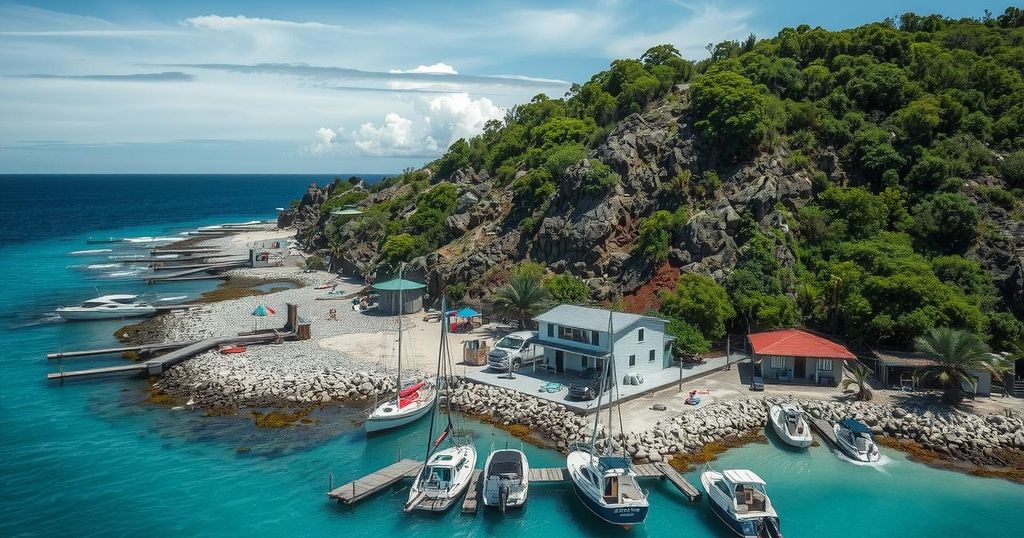Mayotte Island Faces Severe Challenges After Tropical Cyclone Chido
Almost a week after Tropical Cyclone Chido struck Mayotte Island, the territory continues to struggle with recovery efforts. The cyclone caused extensive damage, overwhelming local hospitals and exacerbating existing poverty challenges. Warnings about storm severity were ignored by many residents, raising fears of a high death toll. International leaders have expressed condolences, while calls for aid underscore the urgent need for humanitarian support in the affected communities.
In the aftermath of Tropical Cyclone Chido, which has devastated Mayotte Island, the French overseas territory is facing significant challenges in recovery nearly a week later. The cyclone, described as the most severe storm to hit the island in nearly a century, has resulted in widespread destruction and has left the healthcare system overwhelmed with patients suffering from various medical conditions exacerbated by the disaster. Reports indicate that entire neighborhoods have been obliterated, with many residents disregarding warnings and shelter guidelines, resulting in increased fears of a high death toll, potentially in the hundreds or thousands.
Mayotte, characterized by high levels of poverty, with approximately 75% of its population living in impoverished conditions, has struggled historically with neglect and underfunding. This systemic issue has left the island ill-equipped to manage a catastrophic situation, and Cyclone Chido has intensified the existing crises. The archipelago, with a predominantly Muslim and Shia population, has endured a profound impact from this natural disaster, which has additionally affected a minority of Christians living on the island.
The event has garnered international attention, with expressions of condolences from prominent leaders. Pope Francis acknowledged the plight of Mayotte in a recent address, offering prayers for the victims. Grand Ayatollah Sayyed Sadiq al-Husseini al-Shirazi also expressed his deep sorrow, imploring divine mercy for the deceased and advocating for the urgent need for humanitarian efforts to assist those affected by the cyclone’s devastation. The call to action has emphasized the communal responsibility of believers to extend support and relief to those suffering in Mayotte at this critically challenging time.
Mayotte Island, a Muslim-majority territory located in the Indian Ocean, has been grappling with the severe consequences of Tropical Cyclone Chido. This natural disaster is reported to be one of the most catastrophic storms to impact the region in almost a century, exposing the precarious state of the island’s infrastructure and public health services. Prior to this disaster, Mayotte faced considerable socio-economic challenges, with a significant portion of its population living in poverty. The island’s strategic location and historical roots in Islam contribute to its cultural dynamics, yet it has often been overlooked in terms of investment and developmental support, further complicating recovery efforts post-disaster.
In conclusion, Cyclone Chido has inflicted significant damage on Mayotte Island, revealing the vulnerabilities of a territory marginalized in terms of development. The overwhelming needs for medical care, shelter, and humanitarian aid highlight both the immediate and long-term challenges facing this community. The international expressions of compassion and support underscore the necessity for an organized relief effort and ongoing commitment to assist the residents of Mayotte as they navigate the hardships stemming from this devastating event.
Original Source: shiawaves.com




Post Comment